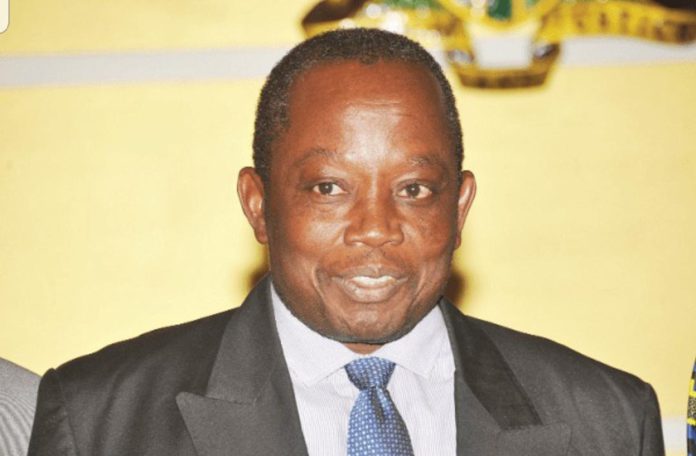Anti-corruption crusader and former Auditor General, Daniel Domelovo, is not the least pleased that the Office of the Special Prosecutor appears to have been reduced to an investigative office despite the prosecutorial powers granted to it in the Act that set it up.
Speaking on JoyNews’ PM Express on Wednesday, December 13, which analyzed the six years of the anti-graft agency’s existence, Mr Domelovo expressed surprise at the suggestion by the Speaker of Parliament, Alban Bagbin, that the setting up of the office was an exercise in futility.
In recent times, the OSP has spoken openly about his frustrations accusing the courts of hampering his work.
The Speaker of Parliament, Alban Bagbin, in response to the lamentations has emphatically stated that the creation of the office was an act in futility.
He stressed that the office will not achieve any results in the fight against corruption, insisting that the Attorney General’s department should rather be decoupled from the Ministry of Justice.
“As for the law you passed on the establishment of the Office of the Special Prosecutor, I did tell you that it was an act in futility, you were not going to achieve anything but you went ahead and passed it,” he said.
Although the former Auditor General found the Speaker’s position on the office disturbing, he somewhat agreed with him after reading a section of the law that established the office.
“When I heard what the Speaker had to say about the OSP, I was disturbed because I asked, so if it is an exercise in futility, which means that it is useless, then where are we headed?
He added, “And after that, I started a bit of research so I read the law, and what I found under Section 4, sub-section (II), to me is very disturbing. It reads: subject to Clause 4 of Article 88 of the Constitution, the Office shall for the purpose of this Act, be authorised by the Attorney General to initiate and conduct the prosecution of corruption and corruption-related cases, which means that the Office is not as independent as we were made to believe, so the mandate still rests with the Attorney General.”
So, the question which came to my mind is, how different is this office from EOCO and maybe CHRAJ and other institutions? So it’s really sad” Mr Domelovo noted.
Despite expressing faint hope in the office, he was of the view that some of the actions taken by the office so far can serve as a deterrent to corrupt people, although that won’t be enough to tackle the canker.
“But Let me also say that the effect of what the OSP and for that matter, any of the anti-corruption offices are doing may not result in prosecution and conviction as expected by Ghanaians. But the mere investigation itself even brings about some deterrence. Imagine seizing your assets and going to court to go and confirm it so that they can do their investigation and this is in the public domain; that alone brings some deterrence but I don’t think it is good enough for us.
He disagreed with the OSP’s position that the courts were almost stripping him of his investigative aside from frustrating his prosecution efforts.
“I don’t think so because if he is going to implement the law, then he must also make sure he operates within the law. You cannot go outside of the law and say that you’re using the same law. I heard of how he went to court on Cecilia Dapaah’s case, and the court said you didn’t come on time. That one, I can’t fault the court for it.
And I think in almost all the cases which he cited, I think the legal basis given by the courts seems to be sound, so I don’t think it is frustration.
He reminded the Special Prosecutor to know and accept the fact that he may not always have his way in court.
“He may not get what he wants, but it’s too early for him to be frustrated because I think that even if all the judges are not interested in fighting corruption, we may have some of them who may be interested; and if they’re correcting you…Remember when I was Auditor General I disallowed and surcharged some people; they went to court and they won the cases, and I was not disturbed by that because, to the best of my knowledge, I was doing my work and the courts were also doing their work.
So he [Special Prosecutor] should do his work as a prosecutor and allow the court also to do its work. But I think it’s too early for us to conclude that it is frustrating him” he added.
ALSO READ:

